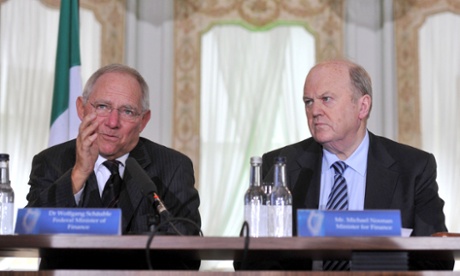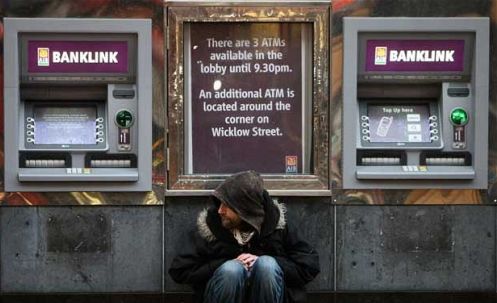Taoiseach Enda Kenny ‘rattled’ by the 25,000 protesters turnout


Senator Ronan Mullen has said the Taoiseach is “rattled” by the turnout at an anti-abortion rally in Dublin on Saturday.
His comments come after Enda Kenny revealed that he has been branded “worse than Herod” by campaigners over the Government’s move to legislate for limited abortion.
His comments come after Enda Kenny revealed that he has been branded “worse than Herod” by campaigners over the Government’s move to legislate for limited abortion.
Gardaí say that around 25,000 people attended Saturday’s ‘Vigil for Life’ rally, where protesters left a voice-mail for the Taoiseach asking him to keep his pro-life promise.
“I think the Taoiseach is rattled, to be frank, that 25,000 people showed up on a cold January afternoon in Dublin,” he said.
“He heard reasonable people, like from the middle ground of Irish society, like Mickey Harte, say very clearly: ‘This isn’t about medical treatment for women to save their lives, we’re all in favour of that, this is about the targeting of innocent, unborn children’.”
Ireland to ‘stick by’ bank pledge


Euro area finance ministers are gathering in Brussels to begin talks on how to channel firewall funds directly to banks.
Minister for Finance Michael Noonan has said that Ireland is “sticking by the commitments made on 29th June” ahead of a meeting of euro-group finance ministers this evening in Brussels.
At a European Summit on June 29th last, it was agreed to break the link between sovereign and bank debt.
Speaking to reporters ahead of the meeting, Mr Noonan acknowledged that there was “a variety of views” regarding the workings of the ESM among member states.
“There are a variety of views but we’re sticking by the commitments made on the June 29th”, he said.
“We’ll be arguing what we understood the situation of the 29th of June. Banks that were still functioning – lending trading banks – would be eligible even though insolvent banks on wind downs mightn’t be,” he said.
There are divisions among euro zone countries about the funds application to Ireland’s previously recapitalised banks.
Finance ministers from the countries which share the single currency are set to discuss the workings of the euro zone’s new permanent bailout fund, the ESM this evening.
Ireland is hoping that AIB and Bank of Ireland will be eligible for recapitalisation from the fund, though the issue of retrospective capitalisation is a contentious one.
The discussions surrounding the ESM are separate to the government’s negotiations with the European Central Bank about recasting of the promissory notes it used to recapitalise Anglo Irish Bank.
The appointment of a new chair of the euro group is also expected to be announced today. Dutch finance minister Jeroen Dijsselbloem is widely expected to succeed Jean-Claude Juncker, who has held the position since 2005.
Twenty Government ministers will travel to Brussels over the next three days to present to European Parliament committees as part of the Irish presidency of the European Council.
They will deliver 27 presentations to the various European Parliament committees outlining Ireland’s priorities for the presidency.
Since the Lisbon Treaty, the European Parliament has gained additional co-decisionmaking powers. Hence gaining support from the parliament is a key function of Ireland’s presidency of the European Council as it strives to progress various pieces of legislation.
Minister for Transport, Tourism and Sport Leo Varadkar will be the first when he presents to the European Parliament committee on transport at 4pm today. Tomorrow and Wednesday there will be a full schedule of presentations.
They include Minister for Finance Michael Noonan’s presentation to the parliamentary committee on economic and financial affairs tomorrow with Minister of State at the Department of Finance Brian Hayes in the Irish chair. European Parliament committees are composed of MEPs from across the political spectrum.
With officials declaring the worst of the region’s three-year market emergency over, finance ministers are debating whether the ESM should take over earlier bank bailouts that were routed through governments and what to do with so-called legacy assets.
A European Union aide who briefed reporters defined those as loans already on a bank’s balance sheet that could cause problems in the future.
“It’s really about signalling,” said Nicolas Veron, senior economist at the Brussels-based Bruegel research group.
“The only thing that really has an impact on markets is when the word unlimited is uttered by somebody in charge, so in the end it’s not a question of how high the big number should be.”
The actual amount of ESM funds available for direct aid to banks may be less than €100 billion because the fund needs to fulfil its main mission of lending to governments that lose market access, Mr Veron said.
Bank aid may also require additional set-asides for the ESM to maintain a high credit rating.
Borrowing costs in bailed-out and debt-laden euro nations have plummeted since the European Central Bank pledged to commit to backing their bond markets.
Spain’s 10-year yield has declined more than 200 basis points. The cost of insuring Ireland against default has dropped 84 per cent since July 2011. Creditor nations such as Germany, the Netherlands and Finland have sought to limit the ESM’s availability to nations struggling to shore up their financial sectors.
Finnish prime minister Jyrki Katainen said last week that bank shareholders and bondholders should bear the brunt of future rescues, bringing in taxpayer money to clean up troubled financial businesses only as a last resort.
Ministers also face whether to convert past bank bailouts such as those they routed through the Spanish, Irish and Greek governments.
Exploration Company reports ‘significant’ gold results in Wicklow


IMC Exploration Group has today announced “significant” gold results from its Wexford licence area.
This follows on from positive test results in December showing some of the highest recorded gold grades ever found in Ireland.
These additional assay results are from follow up sampling on the company’s Wexford licence PL 2551.
This follows on from positive test results in December showing some of the highest recorded gold grades ever found in Ireland.
These additional assay results are from follow up sampling on the company’s Wexford licence PL 2551.
Following the recent announcement from Drillhole 12-2551-04 in Wexford where a core interval from 11.50 to 13.00m has yielded 354g/t gold (=11.38oz/t gold), three distinct gold zones, two at shallow depths and a third at a deeper level, have now been identified in this drillhole.
Dr Glenn Millar, Managing Director of IMC Exploration, commented: “The Board of IMC is very encouraged by these additional significant results from PL Area 2551 and is presently engaged in the next phase of follow-up drilling.
“IMC has made remarkable progress over the last number of months and is convinced that this further drilling will comprehensively define this valuable gold resource.”
“IMC has made remarkable progress over the last number of months and is convinced that this further drilling will comprehensively define this valuable gold resource.”
Childrens asthma hospital admissions falls after smoking ban, A study shows


Admissions fell by 12.3% in first year and more than 3% in each of the next two years, according to analysis of NHS figures
The number of children admitted to hospital after serious asthma attacks has fallen steeply in England since smoking was banned in public places such as bars, restaurants and offices.
Hospitals recorded 6,802 fewer cases of childhood asthma in the first three years of the ban, which was introduced in England in July 2007, according to NHS figures.
Researchers said the fall came as more people imposed smoke-free homes in the wake of the legislation.
Before the change in law, hospital admissions for the condition were rising 2.2% year on year. In the first year after the ban admissions fell by 12.3%, and there were further falls of more than 3% in each of the following two years.
A previous study showed a similar fall in Scotland where the ban was brought in a year earlier.
The findings allay concerns voiced before the change in the law that a wide-ranging ban in public places might drive up smoking in the home, where children are vulnerable to secondhand smoke.
The fumes from smoking can exacerbate asthma by inflaming the airways, and can trigger the condition in susceptible children. Asthma affects one in 11 children in the UK.
“The smoking ban has been an unqualified public health success. There is a whole array of benefits,” said Christopher Millett, of Imperial College in London, whose study on the NHS figures appears in the Pediatricsjournal.
Millett drew on NHS figures known as hospital episodes statistics from April 2002 to November 2010. The reductions in childhood asthma admissions were similar for both boys and girls aged 14 and under, regardless of whether they came from poor or wealthy areas of cities or rural areas.
Emily Humphreys, head of policy and public affairs at Asthma UK, said: “It’s great to see growing evidence of the positive impact of smoke-free legislation. This is something we campaigned for, so it is particularly encouraging that there has been a fall in children’s hospital admissions for asthma since its introduction.
“We have long known that smoking and secondhand smoke are harmful: they not only trigger asthma attacks which put children in hospital but can even cause them to develop the condition. We’ve seen the benefits of reducing secondhand smoke exposure; now we need to do more to prevent children and young people from taking up smoking by introducing plain packaging for tobacco.”
Studies have highlighted other health benefits as people have either cut down on smoking or inhaled less secondhand smoke. In 2010,researchers at Bath University reported a 2.4% fall in emergency admissions in England for heart attacks in the wake of the smoking ban. The fall equated to 1,200 fewer cases in the first year after the ban was introduced.
Penguin-cam reveals shrimp-like feeding spree


A penguin’s-eye view showed the creatures capturing shrimp-like krill at the rate of up to two a second
Their comedy walk is sure to raise a smile but video cameras strapped to the backs of penguins reveal a very different impression.
While they may make slow, shuffling process on land, the flipper-winged birds are lightning fast and agile in the water.
The penguin’s-eye view showed the creatures capturing shrimp-like krill at the rate of up to two a second. Rapid, darting head movements were used to snatch krill and small fish out of the water.
Over a filming period of 78 to 89 minutes, the penguins caught 244 krill and 33 fish.
Scientists studied 15 Adelie penguins in Lutzow-Holm Bay, Antarctica, which were fitted with accelerometers and miniature video cameras.
Penguins were often seen attacking krill head-on. Three birds had a field day after encountering a dense swarm of the crustaceans and devouring as many as two a second.
Other shots showed penguins searching underneath sea ice for Pagothenia fish, and launching attacks from below. The fish were captured with a stretch of the neck.
“Escape behaviour of the fish was not evident in most cases, suggesting an excellent stealth approach by penguins,” the Japanese scientists, led by Dr Yuuki Watanabe, from the National Institute of Polar Research in Tokyo, wrote in the journal Proceedings of the National Academy of Sciences.
Two birds were also filmed searching along the sea bed, one capturing at least four fish.
One penguin discovered a school of fish and ate 14 in just 20 seconds.
No comments:
Post a Comment